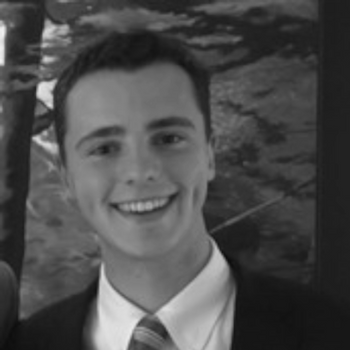University scrambles to reform after 2 free speech lawsuits
Kennesaw State University is facing two separate lawsuits alleging discrimination against conservative students, and the school’s boss is demanding corrective action.
“As you know, two lawsuits have been filed against Kennesaw State University within two weeks alleging systematic failures of [KSU] administrators to understand and apply law and policy in your student affairs division,” University System of Georgia Chancellor Steve Wrigley wrote in a letter to KSU President Ken Harmon in March.
“I find these allegations extremely troubling and am directing you immediately to conduct an assessment of that unit,” he continued, adding, “You need to lead systemic, fundamental improvement of some very basic functions within student affairs, and I expect this to begin today.”
[RELATED: VIDEO: Campus cop takes no nonsense from childish vandals]
In February, the Alliance Defending Freedom (ADF) filed a lawsuit against KSU on behalf of Ratio Christi, a Christian student group that claims administrators repeatedly confined its expressive activities to a tiny “free speech zone” that constitutes just 0.08 percent of the campus.
According to ADF, the university does not have specific guidelines regarding expressive activity, leaving school officials free to restrict activities they deem “controversial.”
On March 5, ADF filed another lawsuit against KSU, this time on behalf of the school’s Young Americans for Freedom (YAF) chapter, challenging the legality of “security fees” the school charged YAF for an event featuring conservative commentator Katie Pavlich.
The lawsuit also objects to a four-tiered classification for student organizations, likewise subject to administrative caprice, which affects which areas of campus a group can use and how much funding it can access.
“A public university is supposed to be a marketplace of ideas, but that marketplace can’t function properly if officials can charge a group ‘security fees’ just because they don’t like what the group is saying, or if officials can provide funding and the best locations only to those sharing ideas that they prefer,” said ADF Legal Counsel Travis Barham. “Kennesaw State’s byzantine speech policies allow officials to place student organizations into an arbitrary caste system of superiors and inferiors, and to assess security fees that numerous courts in other cases have routinely declared unconstitutional.”
[RELATED: Miami relents on $7k security fee for Charles Murray event]
In response to Chancellor Wrigley’s letter, KSU conducted an internal review of its Division of Student Affairs that acknowledged numerous failings requiring corrective action, which Harmon forwarded to Wrigley with his personal endorsement, saying, “I concur with the recommended corrective actions listed in the report, and Kennesaw State University will implement those starting today.”
The document concedes, for instance, that several KSU policies “were not specific enough to prevent potentially subjective decisions,” including the four-tiered classification system and security fee guidelines.
In addition, the investigation revealed that “training and guidance on compliance with the freedom of expression and speech policy and the law have not been provided to all employee levels within Student Affairs, particularly those with front line, day to day engagement with students and groups.”
The investigators offer a lengthy list of recommendations to address those shortcomings, starting with an external review by higher education experts. They also suggest revising the problematic policies exposed by the ADF lawsuits, as well as instituting “ongoing compliance monitoring” to ensure policies are properly advertised and implemented by administrators.
“Campus-wide education on free speech focusing on policies and practices that need enhancement should be implemented,” the document advises, adding that “specific training on how the Board’s Policy on Freedom of Expression and free speech rights should be provided to all Student Affairs staff who engage with RSOs.”
Similarly, it notes that “security fee estimates provided to organizations should clearly state that the estimate can be discussed with Public Safety, and that any disagreement about a proposed security fee may be appealed to the Chief of Police.”
Although the review “did not uncover evidence of a concerted effort by Student Affairs staff to discriminate against specific student constituencies,” KSU determined that “the lack of oversight, training, and compliance allowed an environment to develop that did not mitigate such an eventuality.”
[RELATED: KSU prof compares bias reporting to Gestapo, state rep agrees]
Even as the school pursues its own reforms, however, Republican State Rep. told The Marietta Daily Journal that he plans to “hold some hearings on this vile, discriminatory policy of allowing different tiers of second-class and third-class and fourth-class students,” comparing it to the days of segregation.
“I’ve been telling people you can’t set up these groups and give them special treatment as student organizations. This really is a throwback to the segregation of the Sixties. This is lunch counter stuff,” he declared. “There’s four tiers of student organizations with Christians and conservatives at the bottom and LGBT at the top? Can you imagine if that was turned on its head and it was an African-American organization at the bottom?
“There’s a pesky little Equal Protection thing and they’ve overreached,” he concluded. “I’m going to snuff it out. There’s going to be one tier of student organization, and it’s going to be called equal.”
CORRECTION: A previous version of this article incorrectly stated that the second lawsuit was filed on behalf of Young Americans for Liberty (YAL). The article has been corrected to reflect that the suit was filed on behalf of Young Americans for Freedom (YAF).
Follow this author on Facebook: Zachary Thomas Petrizzo and Twitter: @Zach_Petrizzo

